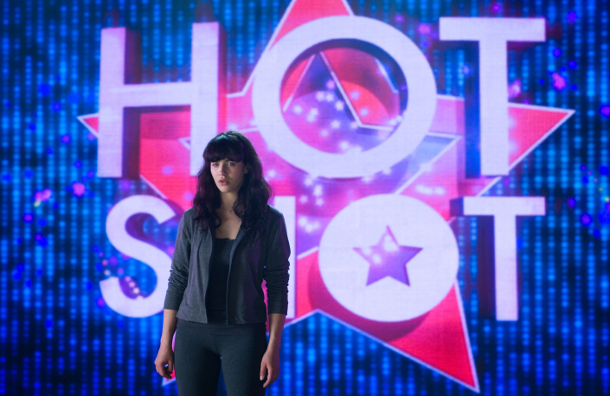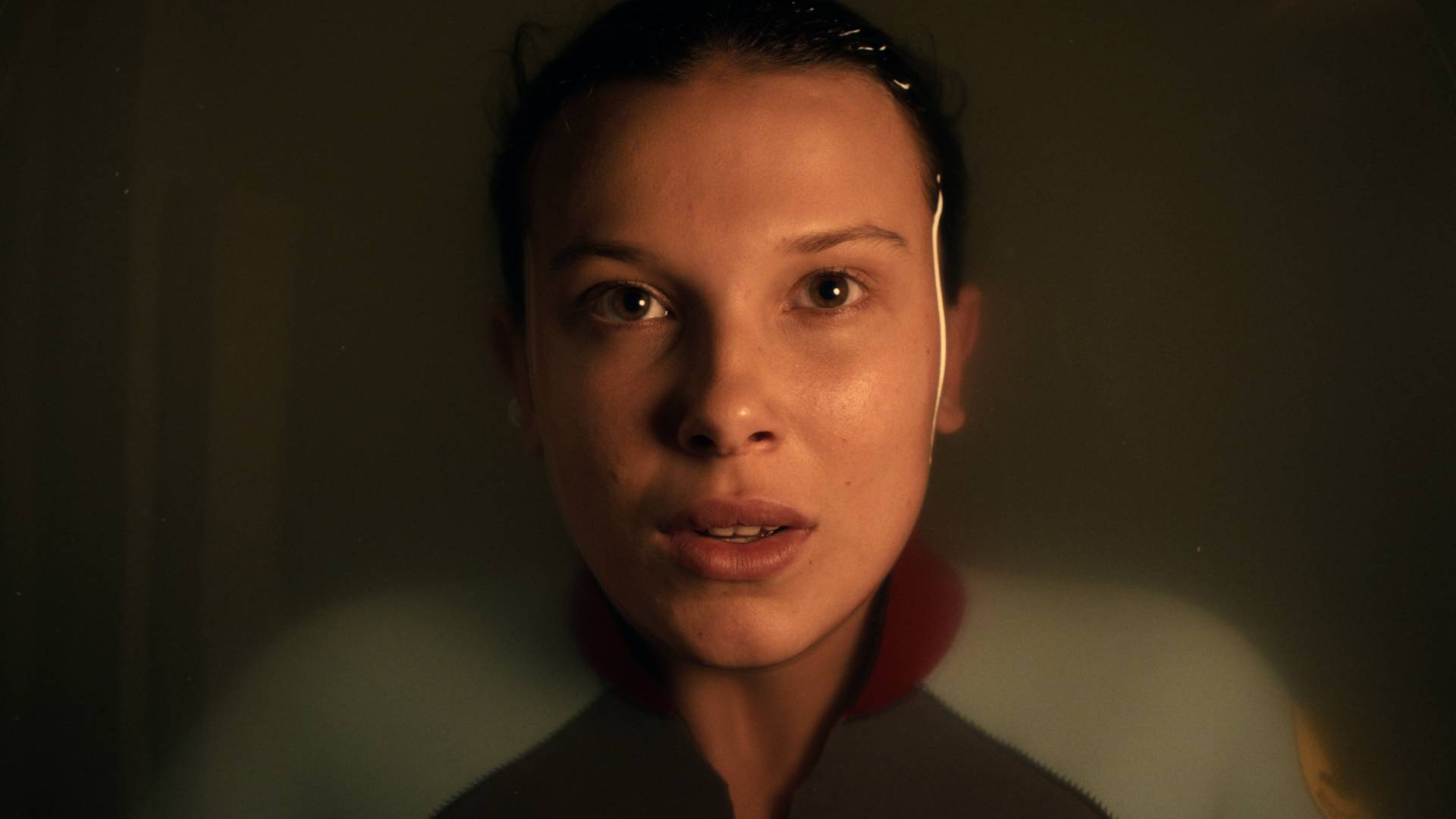Why you can trust GamesRadar+
1984 for the Mii generation
1.02
"15 Million Merits"
Writer: Charlie Brooker
Director: Euros Lyn

Think “anthology show” and what immediately springs to mind are fantastical twisters like The Twilight Zone and The Outer Limits , but this second instalment of Black Mirro r - which sees Brooker deftly steering his series of technological nightmares into no-doubt-about-it, even-Margaret-Atwood-would-probably-agree SF territory - belongs in a more downbeat lineage: the likes of Alan Clarke’s haunting 1984 one-off Stars Of The Roller-State Disco and 1982’s Play For Tomorrow (a six-part, SF-themed run of Play For Today ).
Brooker’s demonstrated before that he can make fantastical conceits accessible, unleashing the undead in the Big Brother house in 2008’s Dead Set , and here he updates Orwell with elan. George isn’t the only ancestor, of course: there’s an echo of Ray Bradbury’s work, too, in the way that the people of its future society live surrounded by wall screens - but then, nowadays that feels less like a fantastical imagining and more like a soon-to-be inevitability. Indeed, many of the details of this society of the spectacle (as Guy Debord would have put it) feel all too imminent. We have a horrible feeling that, if there were any marketing people tuning in, Brooker’s notion of pop-up porno ads on bathroom mirrors might be a self-fulfilling prophecy.
Brooker’s analogue for Orwell’s proles makes clever use of a hot-button issue, as he turns the overweight into a despised underclass. The Winston Smith of the piece is Bing (Daniel Kaluuya, previously “Posh Kenneth” in Skins ) a young man desperately yearning for authenticity in a touch-and-swipe world powered by the frantic pedalling of exercise bikes. His Julia is Abi ( Downton Abbey ’s Jessica Brown-Findlay), whose angelic voice offers the hope of escape from this hermetically-sealed existence, via an X-Factor -style talent show (richly ironic scheduling, right after the X-Factor final - although according to Brooker himself, it's entirely coincidental). As in “The National Anthem” , one of the chief targets of Brooker’s satire is our relationship with television, and the way that passive viewing can twist into mob cruelty. Again, it’s not exactly an original observation, but the point is well dramatised.
What makes “15 Million Credits” superior to its pig-troubling predecessor is that, in its early stages, it’s by some distance the sweetest thing Brooker’s name has been attached to - a dystopian romance. Some might put that down to the influence of co-writer Kanak Huq (aka Konnie - Brooker’s wife and, lest we forget, a former presenter of The Xtra Factor ), but firstly that's "gentler sex" tommyrot, and besides, we’ve long suspected that beneath that scabrous TV persona beats the heart of a thwarted romantic - you don’t get that angry unless you care. That initial sweetness (compounded by a pretty score, strongly reminiscent of Jon Brion’s work on Eternal Sunshine Of The Spotless Mind ) makes the viewing experiences all the more heartbreaking when it curdles. You can see it coming, of course; the moment Bing (named after the search engine?) and Abi tentatively knit fingers you just know they’re headed for a horrible fate.
What you probably don’t suspect is exactly where Bing’s journey will end. Just when you’re certain he’s set for suicide, having delivered a coruscating diatribe (one that’s all the more powerful because for much of the duration he’s practically non-verbal), our hero sells out. The system can tolerate dissent, as long as it can be packaged and commodified; “recuperation”, the situationists called it. That’s something which the self-aware Brooker, a man handsomely remunerated for making angry rants on the box, knows all too well...
Weekly digests, tales from the communities you love, and more
If there is a weak link, it’s in the world-building. We have no real grasp of the wider details of how a society like this could function – who’s manufacturing the screens and making the TV shows? It can’t all be done by the fatties. One also suspects that some of the trapping of this world are so topical that “15 Million Merits” will look quaintly outdated (or require explanatory footnotes) in ten years’ time (picture the viewers of the future asking, “Daddy, what was a Mii?”).
But none of that really matters. Like the best science fiction, “15 Million Merits” makes you think, tackling the important issues of the day in a way that a mass audience can comprehend - something which Brooker’s inspiration, one Eric Blair, would surely approve of. Who knows, maybe some of them will even turn off the TV, shut down their smartphones, and actually have a discussion about it.
Ian Berriman
Read all our reviews of Black Mirror .
Read our review of Dead Set .
Read more of our TV reviews .
Ian Berriman has been working for SFX – the world's leading sci-fi, fantasy and horror magazine – since March 2002. He's also a regular writer for Electronic Sound. Other publications he's contributed to include Total Film, When Saturday Comes, Retro Pop, Horrorville, and What DVD. A life-long Doctor Who fan, he's also a supporter of Hull City, and live-tweets along to BBC Four's Top Of The Pops repeats from his @TOTPFacts account.



